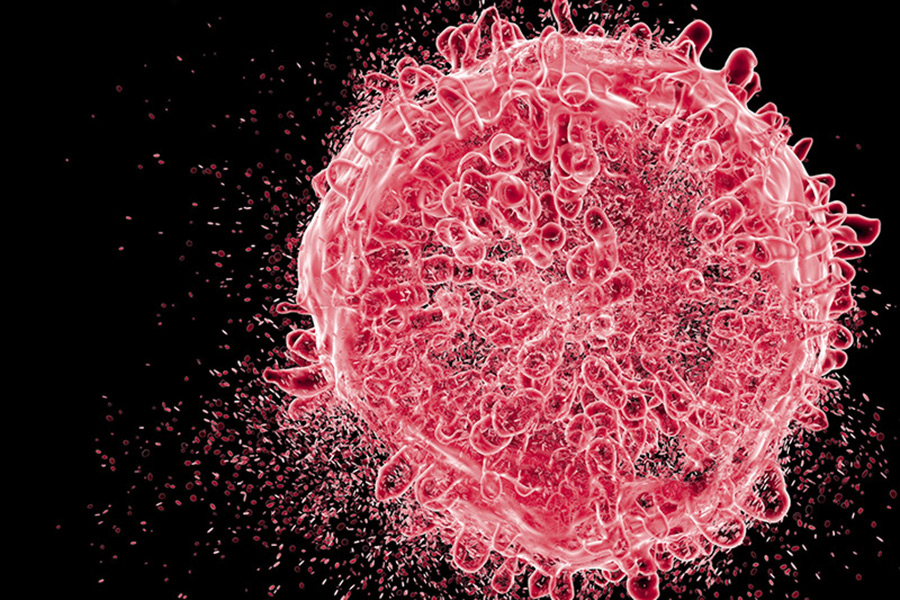Study suggests new approach to treating kids with relapsed cancer.

UI researchers have identified a new target that may help improve treatment for children with relapsed B-cell acute lymphoblastic leukemia (B-ALL), the most common type of childhood cancer.
By measuring the effect of every gene, one by one, in the genome, the researchers have found that a combination of Aurora kinase B inhibitors and steroids may help treat relapsed patients.
B-ALL is highly treatable, and almost 85 percent of children are cured with current therapies. However, when patients relapse or the chemotherapy fails, the outcomes are much worse and there is a need to improve treatments for this group of patients.
The research team—which included collaborators from the Univesity of Southern California and University of California, San Francisco—was led by Miles Pufall, PhD, associate professor of biochemistry at the UI Carver College of Medicine.
Study points to making chemotherapy more effective.
Pufall’s team used functional genomic techniques to understand the causes of relapse and look for ways to make glucocorticoids, a standard chemotherapy for B-ALL, more effective in relapsed patients.
“Functional genomics makes this approach possible because rather than guessing, we measured the effect of every gene on sensitivity to glucocorticoid chemotherapy,” Pufall says.
Pufall notes the findings may have benefits beyond improving therapies for relapsed B-ALL cancers. This type of functional genomic analysis could in principle be done with most chemotherapies for any cancer, and may provide insight on new approaches or combination therapies to improve other forms of chemotherapy and limit side effects.
In addition, steroids like prednisone and dexamethasone are among the most highly prescribed drugs in the world. Identifying what makes them work better or worse might allow physicians to use them more effectively and safely for many purposes.
